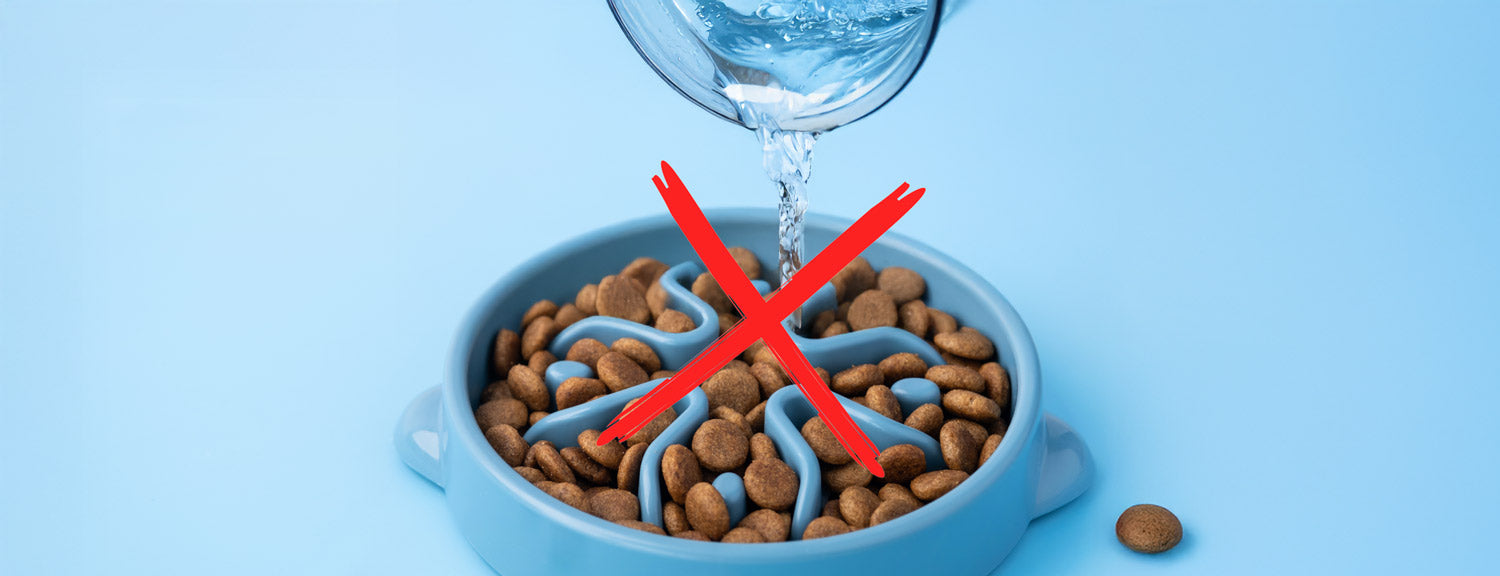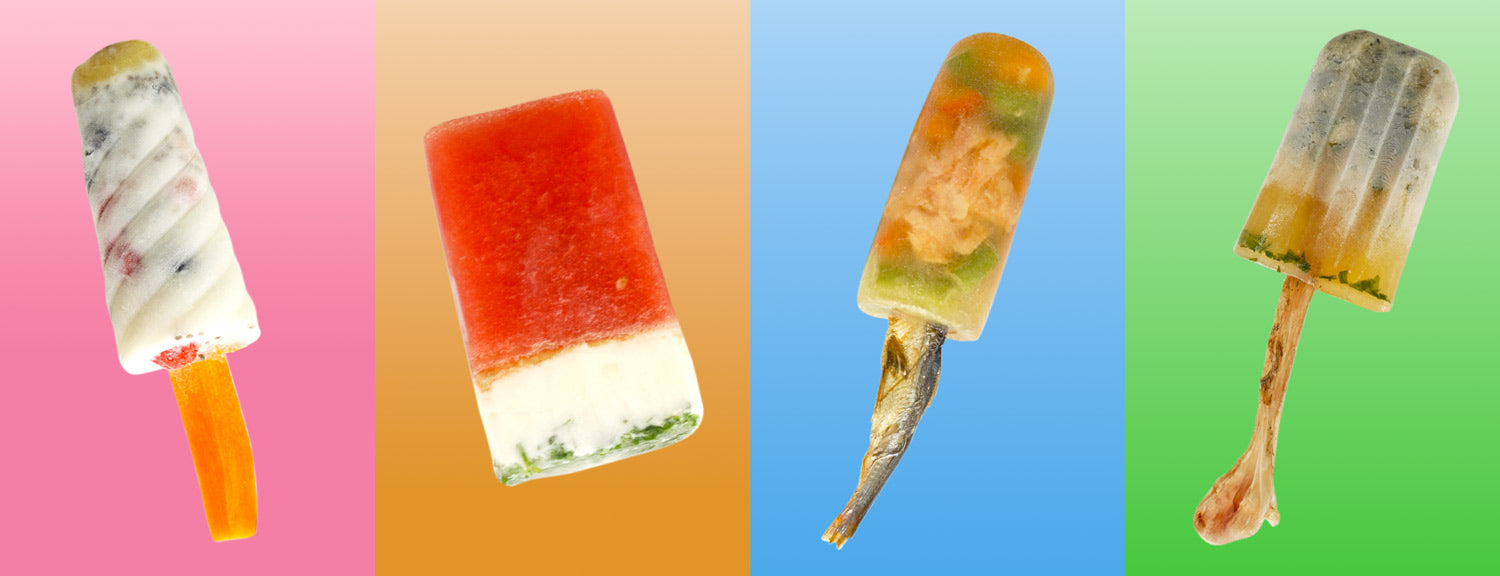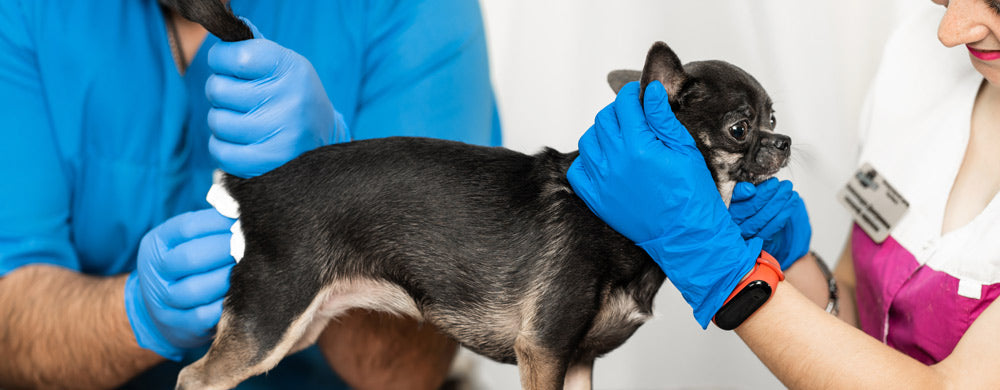Your basket is empty

How to Keep Your Dog's Breath Fresh
June 11, 2024 5 min read
As a devoted dog owner, you’re likely well-acquainted with your furry friend’s charming quirks and endearing habits. Yet, persistent bad breath in dogs is more than just unpleasant—it can be a sign of underlying health issues that need your attention.
In this article and our video, we'll delve into the common causes of halitosis in dogs and explore effective remedies to keep your canine companion’s breath fresh and their overall health in check.
***
Common causes of bad breath in dogs
Poor oral hygiene
Just like humans, dogs need regular dental care to maintain good oral health. Without consistent cleaning, plaque and tartar can accumulate on their teeth, leading to bad breath. Over time, this buildup can progress to periodontal disease, which exacerbates the odour and can cause more severe health problems. Regular brushing, using a toothpaste specifically designed for dogs, and routine dental check-ups with your veterinarian are essential practices to prevent these issues and keep your dog's breath fresh.
Inadequate diet
What your dog eats significantly impacts their breath. While dry kibble is a common choice, it can stick to the gums and teeth, contributing to plaque formation. Poor quality commercial dog foods, especially those with high carbohydrate content and artificial additives, can contribute to bad breath. Certain food ingredients can also exacerbate the problem. For instance, low-quality proteins and fats can break down and produce foul-smelling compounds, leading to bad breath. High carbohydrate diets can lead to an overgrowth of bacteria in the mouth, further increasing the risk of halitosis. Additionally, some dogs might have food sensitivities or allergies that cause gastrointestinal issues, which can manifest as bad breath.
Health issues
Persistent bad breath can sometimes indicate more serious health problems. Conditions such as diabetes, kidney disease, and liver disease can all manifest through halitosis. Gastrointestinal issues and oral tumours may also be culprits.
Foreign objects
Occasionally, a foreign object lodged in your dog’s mouth, such as a stick or bone fragment, can cause an infection, resulting in bad breath.
***
Effective remedies for bad breath
Regular brushing
One of the most effective ways to combat bad breath is by regularly brushing your dog’s teeth.
Just like humans, dogs are susceptible to plaque and tartar buildup, which can lead to gum disease, tooth decay, and ultimately, bad breath. By incorporating a consistent brushing routine into your dog's care regimen, you can significantly reduce the accumulation of plaque and tartar, thereby preventing bad breath and promoting overall dental health.
Read our article to learn how to brush your dog's teeth step by step.
Raw meaty bones
Offering raw meaty bones can be highly beneficial for your dog's oral health. The natural chewing action helps scrape away plaque and tartar, keeping teeth cleaner and breath fresher. Ensure the bones are appropriately sized to prevent choking and avoid cooked bones, which can splinter.
Professional dental cleanings
Ultrasonic teeth cleaning for dogs provides a non-invasive alternative to traditional veterinary dental cleanings performed under anaesthesia. This procedure utilises high-frequency sound waves to remove plaque and tartar buildup from the teeth, offering a gentle and efficient method of maintaining your dog's oral health.
Unlike veterinary dental cleanings under anaesthesia, which necessitate sedation and can be stressful for some dogs, ultrasonic teeth cleaning is conducted while the dog is awake. This can be particularly advantageous for dogs who may not tolerate sedation well or for pet owners who prefer a less invasive approach to dental care.
While ultrasonic teeth cleaning is not a substitute for veterinary dental cleanings performed under anaesthesia, it can serve as a valuable complementary option for maintaining your dog's oral health between professional cleanings. Regular ultrasonic cleanings can help prevent the progression of periodontal disease and reduce the need for more invasive dental procedures in the future.
Proper diet
In combatting bad breath in dogs, implementing a proper diet serves as a vital remedy. Opting for high-quality dog food, particularly those with balanced nutrition and minimal additives, can significantly alleviate bad breath.
Consider incorporating dental-friendly foods into your dog's meals. Raw meaty bones, for example, offer multiple benefits in promoting oral hygiene and fresher breath. These bones facilitate natural chewing action, which helps to remove plaque and tartar buildup, reducing the likelihood of bad breath. Moreover, the act of gnawing on bones can help strengthen jaw muscles and alleviate boredom, contributing to your dog's overall well-being.
Introducing fresh vegetables and herbs into your dog's diet can offer additional benefits. Carrots and apples, known for their crunchy texture, act as natural teeth cleaners, effectively scrubbing away debris and promoting cleaner teeth. Additionally, parsley is renowned for its breath-freshening properties, helping to neutralise odours and keep your dog's breath smelling pleasant.
Regular vet check-ups
Regular visits to the vet are essential for early detection of potential health issues that may be causing bad breath. These check-ups can help diagnose and treat underlying conditions such as diabetes, kidney disease, or oral infections.
Dental supplements
In addition to dietary adjustments and regular dental care, incorporating dental supplements into your dog's routine can provide additional support in maintaining oral health and combatting bad breath. One such supplement is our Chomper, a natural solution designed to target tartar, plaque, and bad breath in dogs.
Chomper stands out for its unique blend of natural ingredients carefully selected to promote dental hygiene and fresh breath. Formulated with a combination of plant-based enzymes, minerals, and nutrients, Chomper works synergistically to break down tartar and plaque buildup on your dog's teeth, effectively reducing the risk of dental issues and foul odours.
Hydration
Adequate water intake is essential for maintaining optimal oral health in dogs. When your dog drinks enough water, it helps to wash away food particles and bacteria from their mouth, preventing the formation of plaque and reducing the risk of bad breath. Additionally, proper hydration promotes saliva production, which acts as a natural defence mechanism against oral bacteria and helps to keep the mouth moist and healthy.
***
When to seek professional help
While minor bad breath can often be managed at home, persistent or severe halitosis warrants a visit to the veterinarian. If you notice symptoms such as excessive drooling, difficulty eating, or visible oral lesions, it’s important to seek professional advice. These signs could indicate more serious conditions that require medical intervention.
Maintaining your dog’s oral health is crucial for their overall well-being. By understanding the causes of bad breath and implementing effective remedies, you can ensure your furry friend stays healthy and happy. Remember, regular dental care and professional check-ups are key components in preventing and addressing halitosis in dogs. Your dog’s breath may never be minty fresh, but with the right care, it can certainly be a lot more pleasant.
Also in Pet Advice

Should You Add Water to Your Dog’s Kibble? Here’s What the Science Says
August 14, 2025 7 min read
Should you add water to your dog’s kibble? Discover the science-backed pros, cons, and better alternatives like bone broth and fresh food to improve hydration, digestion, and overall canine health...

DIY Frozen Dog Treats Your Pup Will Love
June 27, 2025 4 min read
Summer heat can be dangerous for dogs, making hydration more important than ever. Learn how to spot signs of dehydration, boost your pup’s water intake, and create fun, frozen recipes to keep them happy and healthy all season long.

Why Is My Dog Scooting? Common Causes and How Diet Can Help
May 09, 2025 4 min read
If your dog is scooting or smells fishy, it could be due to blocked or irritated anal glands. Learn what causes blocked anal glands, which dogs are most at risk, and how simple dietary changes—like adding fibre and anti-inflammatory nutrients—can help prevent recurring problems.
